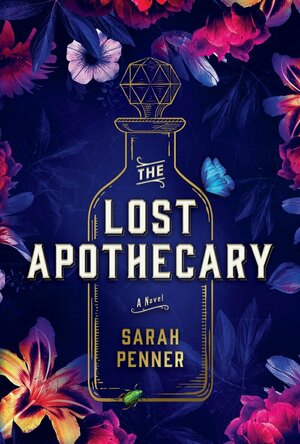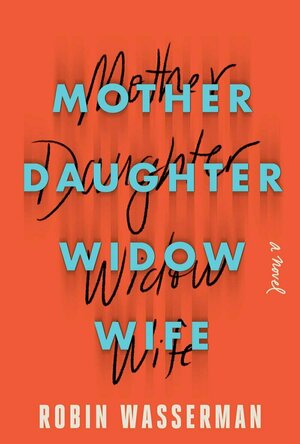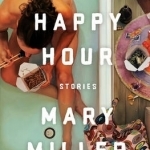
Always Happy Hour: Stories
Book
Combining hard-edged prose and savage Southern charm, Mary Miller showcases biting contemporary...
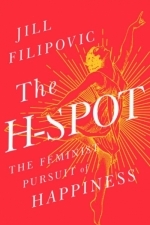
The H Spot: The Feminist Pursuit of Happiness
Book
What do women want? The same thing men were promised in the Declaration of Independence: happiness,...
Gender studies
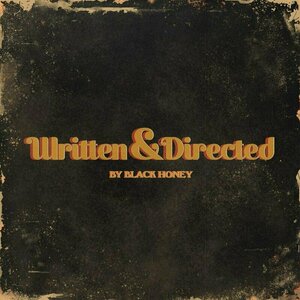
Written & Directed by Black Honey
Album
‘Written & Directed’ is Black Honey’s second album. It follows their outstanding self-titled...
Melanie Caldicott (6 KP) rated The Lost Apothecary in Books
Apr 29, 2021
The Lost Apothecary by Sarah Penner is a novel which switches between the storylines of a female apothecary in the 1790s who sells poisons to women to kill men who have wronged them and the present day, in which Caroline happens upon a clue which leads her to investigate the apothecary’s story.
Well, the idea of an apothecary dispensing poison for women to use for murder was enticing to say the least. This book had the potential to weave a thought-provoking, adventurous tale, developing themes about womanhood, oppression and doing evil for good. Sadly, for me it did not quite meet the mark.
The narratives switch between three characters, Caroline, our present-day historian, Nella, the apothecary, and Eliza, a servant girl who becomes friends with Nella over the course of the book.
As I said, I was expecting this novel to grapple with challenging themes, which could have been very emotive and dark. Yet, it turned out to be just a bland bit of light fiction never dwelling on anything for too long, skimming over the surface of most of the characters, their motives and their reactions and lacking depth on any of the parallel-running plotlines.
It is surprising how a book surrounding multiple murders, historical medicine and herbalism and women trapped in marriages with infidels, letches and rapists could be quite so vanilla. It was a pleasant enough read, but lacked the substance I was hoping for.
I found Nella, the apothecary to be a bit of an enigma. We do learn about her back story and gain some insight into her motives for dispensing the poisons. However, for a woman who was resourceful enough to construct the whole clandestine operation we meet her in a weakened state and I grew frustrated with how she seemed to fall into an oblivious kind of dream-like manner becoming swept along by circumstance with no clear influence on the events or people around her.
Eliza, was a naïve girl who met Nella whilst running an errand for her mistress. It is not really clear why the friendship between Nella and Eliza develops, it seems to be more for the convenience of the plot than due to real concrete reasoning. However, an intimacy develops between them which has the potential to bring new colour to the characters. But yet again, Penner seems to skim the surface of going to any depths and I was left feeling robbed of any insight into the emotional and kindred aspects of their friendship.
Finally, Caroline’s story in the present day brought a different perspective to the themes of womanhood running through this book. She parallels the wronged women of the 18th century by escaping to London on a trip she was supposed to take with her husband to celebrate their tenth wedding anniversary, but was instead travelling alone having discovered her husband had been having an affair.
I initially enjoyed Caroline’s historical investigations as they took her to The British Library and researching documents and newspapers there. As an avid genealogist I appreciated the details Penner gives about the sources of Caroline’s research and the challenges of finding the truth from historical documents.
Yet, again her story became somewhat contrived. It seemed unlikely that she would make some of the discoveries she did and her investigation became constructed around coincidence and unrealistic serendipity. Even the parallel storylines surrounding her relationship and those from the apothecary’s timeline seemed somewhat silly and phoney.
For me, the conclusion of the book yet again did not fully reconcile itself and therefore left me unmoved and feeling somewhat apathetic about the ending and the novel as a whole.
MaryAnn (14 KP) rated The Study Bible for Women, HCSB in Books
Mar 5, 2019
The hardcover is very lovely and feminine. It has full-color maps and splashes of color throughout the Bible. This would make a lovely gift, or just for your own resource.
Ms. Patterson is a wonderful woman, I have heard her speak and I truly do recommend this Bible for any age woman. The Study Bible for Women equips you to reach deep into God’s Word. Perhaps the single most powerful aspect of this Bible are the "threads" of specialized study thoughtfully woven throughout, pointing you to God’s larger story and allowing the Holy Spirit to write His revealed truths on your heart.
In The Study Bible for Women, you’ll join a host of other women, all academically trained in the original languages of the Bible and passionate about God’s Word, for an intimately deep dive into Scripture that will equip you to unlock the riches and majesty of His Word, and ignite a passion to mentor others in your life to do the same.
Features
· Extensive commentary notes
· Word studies
· Answers to hard questions
· Doctrinal notes
· Biblical womanhood articles
· Character profiles
· "Written on My Heart" applications
http://www.bhpublishinggroup.com/
· Extensive book introductions
· In-text maps, charts & timelines
· Full-color maps section
· Concordance
· Presentation page
· Family record pages
The Study Bible for Women Video
I received this book free from the publisher. I was not required to write a positive review and the opinions I have expressed are my own. I am disclosing this in accordance with the Federal Trade Commission’s 16 CFR, Part 255 : “Guides Concerning the Use of Endorsements and Testimonials in Advertising.”
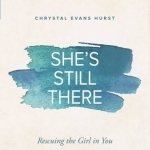
She's Still There Study Guide: Rescuing the Girl in You
Book
Poor decisions, a lack of intentionality or planning, or a long-term denial of deep hopes and dreams...
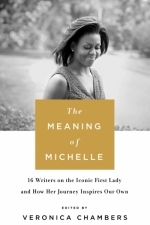
The Meaning of Michelle: 16 Writers on the Iconic First Lady and How Her Journey Inspires Our Own
Book
“Whenever I think about Michelle Obama, I think, ‘When I grow up, I want to be just like her. I...
Essays Politics social issues
How it Feels to be Free: Black Women Entertainers and the Civil Rights Movement
Book
Winner of the Benjamin L. Hooks National Book Award Winnter of the Michael Nelson Prize of the...
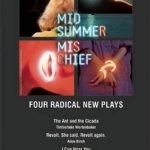
Midsummer Mischief: Four Radical Plays
Timberlake Wertenbaker, Alice Birch, E.V. Crowe and Abi Zakarian
Book
A volume of four new plays as part of the RSC's Midsummer Mischief by Alice Birch, E. V. Crowe,...
Kristy H (1252 KP) rated Mother Daughter Widow Wife in Books
Jul 2, 2020
"Every daughter became a mother, every mistress a wife--every wife a widow."
This is a hard book for me to rate, even several weeks after finishing it. Is it a brilliant work examining womanhood and love or a frustrating tale that leaves you feeling unresolved? This is certainly a complex book that features complex science, emotions, and feelings. Wasserman has done her research, and there are pages and pages devoted to the science of dissociative fugue, amnesia, and more. I won't lie: it's a lot. There were times I found myself just skimming those sections, because it was a bit much for me.
I didn't care much for the character of Alice, and I'm not entirely sure why, because her mother is missing (presumed dead by suicide by everyone except Alice), and she's worried. But there's something about Alice that just didn't make her particularly sympathetic to me. As for Lizzie, even though she didn't make the best of choices, I liked her more. Maybe I identified better with her. We get to see Lizzie in the past and present, and Wasserman does a good job of capturing the yearning of loving someone who doesn't deserve you and the idea of becoming someone else for love. Even Wendy is hard to care about sometimes, because she just doesn't seem care herself. To her, her memory is a thing she's lost, but because she can't remember, she doesn't seem too concerned.
"'You don't get it: I don't not want it back, and I don't want it back. There is no it. You can't miss what never happened.'"
What was so hard with this book is that there were just so many words. Oh the words. Words about science, words about feelings, words, words, words. It just felt long. I wasn't entirely invested in the story, but I did want to find Alice's mother, but then everything just felt sort of eh and unresolved, and yeah. I don't know. So much thinking, not much happening. I think this novel probably presents some brilliant ideas and representations, but they went over my head. 2.75 stars, rounded to 3 here.
